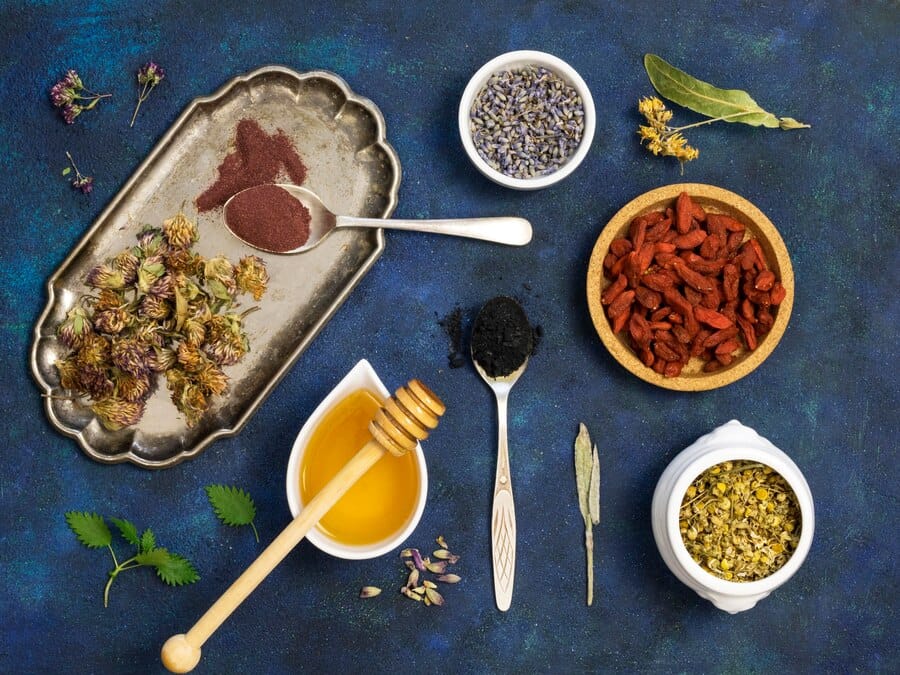DIY Herbal Remedies for Common Ailments
Explore natural DIY herbal remedies for common ailments. Learn how to use herbs and plants to alleviate symptoms and promote holistic healing.

Introduction

Herbal remedies have been used for centuries to treat various ailments and promote overall well-being. Harnessing the power of nature, these DIY remedies offer safe and effective alternatives to conventional medicine for common health issues. In this article, we'll explore a range of herbal remedies that you can easily prepare at home to address common ailments.
Understanding Herbal Medicine
The Power of Nature's Pharmacy
Plants have long been recognized for their medicinal properties, containing compounds that possess healing properties. Herbal medicine harnesses the therapeutic potential of these plants to promote health and alleviate symptoms naturally. From soothing teas to topical ointments, herbal remedies offer a holistic approach to wellness.
Traditional Wisdom and Modern Science
While herbal medicine is rooted in traditional wisdom passed down through generations, modern scientific research continues to validate the efficacy of many herbal remedies. Studies have identified active compounds in plants that exhibit anti-inflammatory, antimicrobial, and antioxidant properties, supporting their use in treating various health conditions.
Common Herbal Remedies and Their Benefits
Peppermint for Digestive Health
Peppermint is renowned for its ability to soothe digestive discomfort and alleviate symptoms such as indigestion, bloating, and gas. Drinking peppermint tea or taking peppermint oil capsules can help relax the muscles of the digestive tract and relieve spasms, promoting smoother digestion.
Echinacea for Immune Support
Echinacea is prized for its immune-boosting properties, making it a popular remedy for preventing and treating colds and flu. This herb stimulates the immune system, helping the body fend off infections more effectively. Consuming echinacea tea or tincture at the onset of illness can shorten the duration and severity of symptoms.
Lavender for Stress Relief
Lavender is revered for its calming and relaxing effects on the mind and body. This aromatic herb has been used for centuries to reduce stress, anxiety, and insomnia. Incorporating lavender essential oil into a soothing bath or diffusing it in the air can promote relaxation and improve sleep quality.
DIY Herbal Remedies for Everyday Ailments
Herbal Tea Blends
Creating your own herbal tea blends allows you to tailor remedies to your specific needs. Combine herbs like chamomile, lemon balm, and ginger for a calming blend that promotes relaxation and aids digestion. Experiment with different combinations to discover your favorite flavors and benefits.
Herbal Salves and Balms
Herbal salves and balms offer topical relief for a variety of ailments, from minor cuts and scrapes to muscle soreness and joint pain. Infuse herbs like comfrey, calendula, and arnica into carrier oils such as coconut or olive oil to create soothing salves that promote healing and reduce inflammation.
Herbal Steam Inhalations
Steam inhalations with aromatic herbs can provide relief from respiratory congestion and sinus discomfort. Add dried herbs like eucalyptus, peppermint, and thyme to a bowl of hot water, then cover your head with a towel and inhale the steam deeply. The vapors help open up the airways and ease congestion.
Precautions and Considerations
Consultation with a Healthcare Professional
While herbal remedies can offer valuable support for common ailments, it's essential to exercise caution and seek professional guidance, especially if you have underlying health conditions or are pregnant or breastfeeding. Consulting with a qualified healthcare practitioner can help ensure safe and effective use of herbal remedies.
Quality and Safety
When using herbal remedies, prioritize quality and safety by selecting organic, sustainably sourced herbs from reputable suppliers. Avoid using herbs that you are allergic to or that may interact with medications you are taking. Start with small doses and monitor your body's response to ensure tolerance and efficacy.
Conclusion
DIY herbal remedies provide a natural and empowering approach to managing common ailments and promoting holistic well-being. By harnessing the healing power of herbs and plants, individuals can take charge of their health and cultivate a deeper connection with nature. Whether sipping soothing teas, crafting aromatic salves, or inhaling fragrant steam, incorporating herbal remedies into your wellness routine can enhance vitality and vitality.